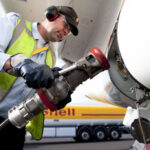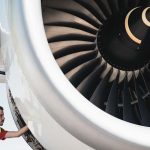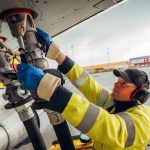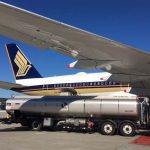The International Air Cargo Association (TIACA) has launched a new tracking programme through which its airline, airport, freight handling and ground handling members can assess and verify their sustainability actions, and benchmark progress against their peers, as part of a broader drive to expedite transformation of the air cargo sector. The first stage of the programme, called BlueSky, is the introduction of a desktop verification module, trialled by African freight airline Astral Aviation, airport ground services company Swissport and cargo handling company CSC India, ahead of formal assessments and rollout of the programme across the air freight sector. The BlueSky Program follows the recent release of TIACA’s second sustainability survey, which revealed a significant shortfall of resources and funding for members to progress sustainability initiatives. The survey also reflected a lack of specific sustainability targets and measurement at a time when a growing range of stakeholders required that information and revealed less than one third of respondent companies were “actively involved” in deploying sustainable aviation fuels, reports Tony Harrington.
As well as guiding individual companies in the cargo sector to develop and refine their sustainability plans, the BlueSky Program has also been designed to help improve the image of the industry by building a common and transparent vision for sustainability and strengthening its social licence to operate and grow. “The impact that this programme will have on the industry is profound,” said Steven Polmans, TIACA Chair and a senior executive of Abu Dhabi Airports. “The pilot phase of the desktop verification is the beginning of real change. To be able to provide the industry with transparency on such an important topic as sustainability is a game changer and we look forward to seeing the impact it has on our industry.”
The TIACA sustainability survey, conducted between November 2021 and January 2022, found the focus of the air freight sector on all forms of sustainable behaviours was increasing, at a time of greater stakeholder interest in sustainable performance, but highlighted gaps in the industry’s actions to deliver outcomes. “The pressures on this industry to prioritise sustainability are ever-increasing as customers, employees, business partners and, increasingly, investors and regulators, are asking air cargo businesses for their sustainability credentials,” said TIACA Director General Glyn Hughes. “However, while the leadership is now paying attention to the sustainability agenda, there is still a long way to go as the resources and budgets to push it forward are still very scarce.”
Almost all respondents in the latest TIACA report (93%) said their company’s sustainability agenda was supported directly by the chief executive officer, an increase of two percentage points over the 2020 report. But that support did not always translate to commitment, for while 81% said sustainability was “a strategic priority” (up two points over 2020), 73% of respondents said their companies actually had a defined sustainability strategy (down two points) and 71% said sustainability was part of their procurement process (up two points).
Just over half of the respondents (52%) confirmed that their companies had “at least one dedicated person” to manage their sustainability agendas (nine points lower than in 2020), while only 37% said they had a specific sustainability budget (six points down). Of these, 42% of airlines, 40% of ground handlers, 36% of airports and 29% of freight forwarders said they had “a dedicated budget to drive their sustainability agenda”.
Half of the respondents said their companies shared details of their sustainability performance externally, compared to 80% of companies in all industries.
TIACA’s sustainability report found companies in the air cargo sector prioritised “quick wins and cost saving opportunities” in their sustainability strategies. Most (63%) focused on reducing energy use in their own operations, followed by optimised vehicle use (59%), transition to green buildings (48%), upgrade to cleaner aircraft and ground vehicle fleets (45%) and use of an “effective offsetting mechanism” (41%), while 18% of respondents “consider carbon offsetting schemes do not apply to them”. Many businesses focused heavily on eliminating single-use plastics and better management of water use.
Less than one third of the respondents (31%) said they were “actively involved” in deployment of sustainable aviation fuels, while the same proportion “feel SAF doesn’t apply to them”. Those most involved in SAF use were large companies in the air freight sector (52%), dropping to just 13% with medium-size companies and 3% with small enterprises. The highest proportion of SAF use by air cargo-related companies was in Europe (40% of respondents) and North America (34%), while no respondents from Latin America, North Asia or Africa said they were involved in a SAF project during the survey period. Unsurprisingly, 48% of airline respondents to the survey had invested in or were using SAF “or other fossil-free energy”.
“Despite the challenges presented by Covid, sustainability remains a key priority area for the industry and for TIACA as we must reflect the interests of the global society which we collectively serve,” said TIACA’s Hughes. “We must now take the next leap forward in setting specific targets measuring results and reporting with transparency. TIACA has a critical role to play in helping organisations and brands develop environmentally and with socially-sustainable solutions and practices.”
Photo: Swissport














More News & Features
Airfreight giants DHL Express and FedEx announce big US SAF deals
FedEx secures 3 million gallons of SAF for its LAX operations in one-year deal with Neste
SAF book-and-claim adopted by Formula 1 motor racing to reduce cargo flight emissions
Atlas Air signs 5% SAF deal with Repsol for flights on behalf of Spanish fashion company Inditex
Air bp makes first ISCC EU sale of co-processed SAF to LATAM Cargo from its Castellon refinery in Spain
Cathay Pacific to acquire Aemetis SAF and extends carbon offset programme to air freight